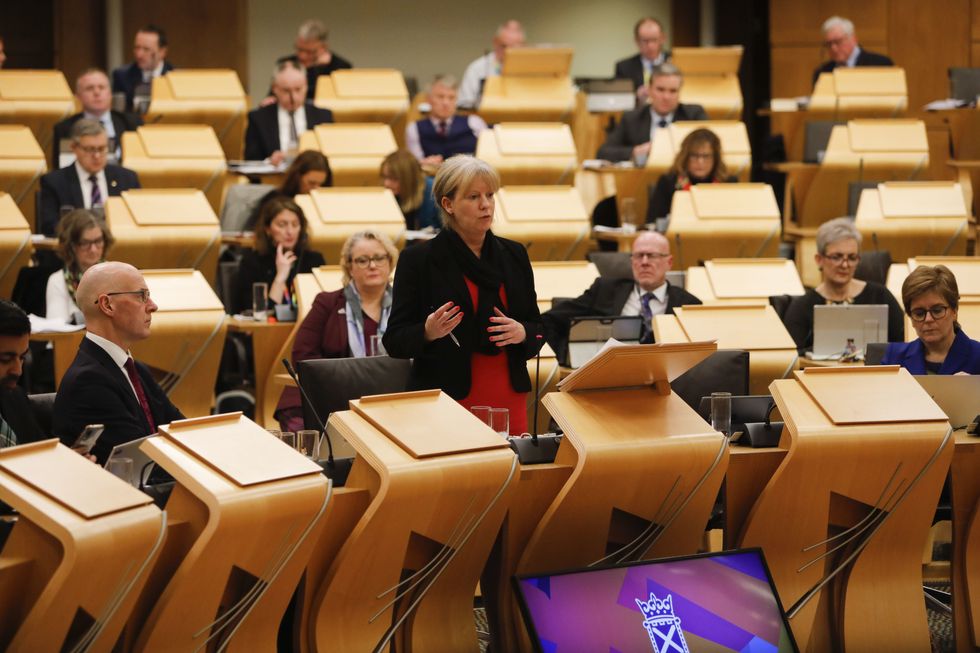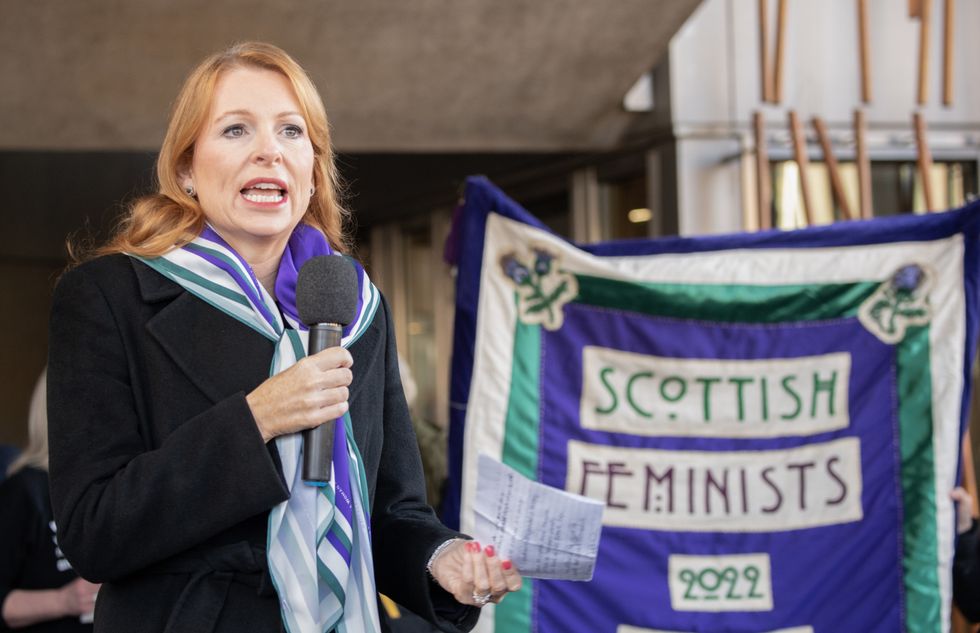Trans law passed in Scotland: SNP forces through bill that lets 15-year-old children begin process of changing gender WITHOUT medical diagnosis


Nicola Sturgeon's SNP ensure Gender Recognition Bill passes by 86 votes to 39
Don't Miss
Most Read
A controversial gender bill which allows transgender people to self-identify has been passed by MSPs in Scotland.
The Gender Recognition Reforms (Scotland) Bill, which removes the need for a medical diagnosis of gender dysphoria to acquire a gender recognition certificate (GRC) was passed by 86 votes to 39.
It also reduces the minimum age for applicants to 16 and lowers the time required for an applicant to live in their preferred gender from two years to three months.
Those aged 16 and 17 will need to wait six months until they can apply for a GRC, but it means people can begin the process when they are just 15-years-old.
The SNP has confirmed that time spent living in an “acquired gender” as a 15-year-old would count towards a six-month minimum time period required by the legislation.
Anyone wanting to change their legal gender will still need to swear by oath that they will remain this way for life but there is an option for the certificate to be reversed.
The new law also states that there is a three-month reflection period before the certificate is issued.
Scotish trans law: MSPs have been debating the gender Bill this week
Andrew Cowan/Scottish Parliament
An intense debate has been ongoing this week as MSPs spent more than 24 hours considering amendments ahead of the final vote.
Following the announcement, applause from supporters of the reforms could be heard as well as shouts of “shame on you” from the public gallery.
Opponents of the legislation questioned its possible impact on women and girls particularly in relation to single sex spaces, but the Scottish Government said little will change.
The passage of the Bill does not clear its path to the statute book as Scottish Secretary Alister Jack now able to legally challenge the law if he believes it impacts on the UK, while private groups are also able to take legal action should they wish.
Speaking in the final debate on the Bill on Thursday, Social Justice Secretary said: “Every party in this chamber except one made a clear commitment to the reforms set out in this Bill at the last Scottish election, and at the one before that it was all parties.
“Members from all parties in this chamber voted to support the general principles of the Bill at stage one.
“At this final stage, I urge all members to vote in favour of these important reforms and for the Bill, I move the motion in my name.
“Trans rights are not in competition with women’s rights, and as so often before, we can improve things for everyone when those discriminated against act as allies, not opponents.”
Trans law: SNP Minister Ash Regan speaks at the For Women Scotland demonstration
Lesley Martin
But Scottish Conservative MSP Rachael Hamilton said the Bill “has shown this Parliament at its worst”.
She added: “In the rush to make the process a little easier for trans people, the Government is making it easier for criminal men to attack women. That’s the problem here.”
MSPs have spent 24 hours this week debating it after two marathon sessions considering amendments on Tuesday and Wednesday – with the Wednesday’s discussions finishing at 1.15am on Thursday.












